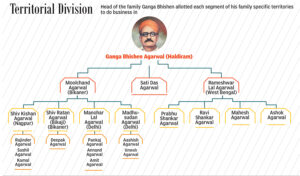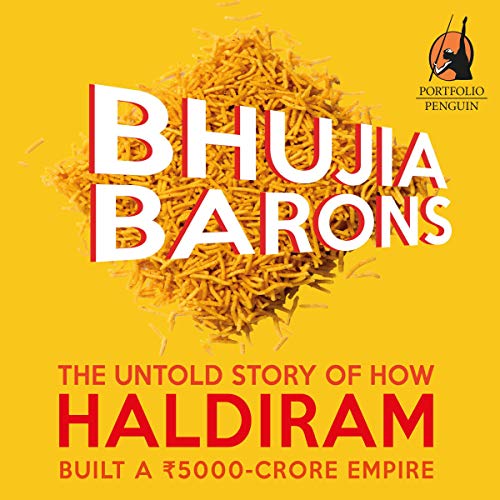The Inspiring Journey of Haldiram: A Legacy of Bhujia Across Generations
Discover the captivating story of Haldiram, a brand that has become synonymous with delicious Bhujia and snacks, tracing its roots back to the entrepreneurial spirit of Ganga Bishan Agarwal, affectionately known as Haldiram ji. This remarkable journey spans three generations and four major cities—Bikaner, Kolkata, Nagpur, and Delhi—showcasing how a small family business blossomed into a thriving empire.
The Family Legacy of Haldiram
Haldiram ji hailed from Bikaner, Rajasthan, where he began his journey in the family business of crafting the famous Aloo Bhujia and traditional sweets. Assigned the task of producing Bhujia, Haldiram faced challenges due to family rifts stemming from unequal distribution of responsibilities. Ultimately, he and his wife decided to part ways with the family business, driven by their passion for creating the perfect Bhujia recipe. In 1941, they opened their own small shop in Bikaner, and thus began the legacy of Haldiram’s Bhujia.
The Marwadi Community’s Influence
Originating from Rajasthan, the Marwadi community traditionally lacked access to agricultural land, prompting many to engage in trade and artisanal crafts. This entrepreneurial spirit led families like Haldiram’s to explore opportunities in sweet-making and snack production across India. By the age of 33, Haldiram had become a grandfather, with his entire family actively involved in the business. Under his guidance, they expanded into Kolkata, Delhi, and later Nagpur.
Challenges of Expansion
As the Haldiram brand grew, it faced both positive and negative impacts on family dynamics. Complications arose regarding trademark rights and revenue-sharing agreements among the branches in Kolkata, Nagpur, and Rajasthan. The elder son managed operations in Kolkata while sending revenue back home, which created cash flow issues for other branches. Such disputes highlighted the complexities of managing a family business during rapid expansion.
The Marwadi Community’s Resilience
During British rule, Marwadis were respected traders whose contributions significantly impacted local economies. This legacy continues today, with many temples and educational institutions reflecting their influence. Despite modern achievements like IITs and IIMs among community members, traditional values remain strong. Young family members are still encouraged to participate in business decisions while respecting elder wisdom.
Transitioning to Modern Business Practices
Haldiram’s traditional business model lacked modern hierarchy; owners communicated directly with employees about production processes. This structure led to challenges such as reliance on single vendors for essential supplies, increasing the risk of adulteration in ingredients like besan and oil. Recognizing these issues, Haldiram’s grandson initiated changes to modernize operations and create a more efficient supply chain.
Legal Challenges Impacting Growth
Prabhu Shankar Agrawal, son of Rameshwar Lal Agarwal, took charge of the Kolkata branch but faced significant legal entanglements that resulted in life imprisonment. These legal battles drained resources and energy from the business, hindering expansion efforts and damaging the brand’s reputation.
Conclusion
The story of Haldiram is a testament to resilience and innovation within a family-run enterprise. From its humble beginnings in Bikaner to becoming a household name across India, Haldiram’s journey reflects both the challenges and triumphs faced by generations of entrepreneurs. As they navigate modern business landscapes while honoring their rich heritage, Haldiram continues to inspire future generations in the world of snacks and sweets.

family-chart-haldiram

